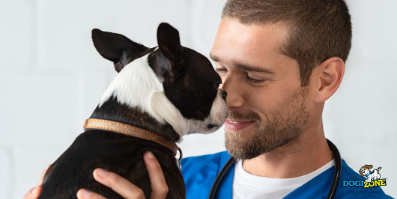Recognizing the Importance Of Dogs During National Immunization Awareness Month
August is National Immunization Awareness Month. It is a great time to brush up on your understanding of immunization programs for dogs. 
There are specific immunization requirements throughout the life of dogs. The specific vaccinations may differ slightly depending on where you are located and the types of health risks for dogs in your area. In addition, puppies and dogs that are around other dogs on a frequent basis are often immunized for additional issues, including kennel cough.
To ensure puppy health, there are age recommendations for vaccinations. Vaccinations such as DHPP, which helps to build up antibodies for distemper, adenovirus, parainfluenza, and parvovirus are recommended three times throughout the first year and half of life, and then every year or two years through adulthood.
Puppy Vaccination Schedule
There are basic and optional vaccinations at these stages. A vet can assess the risk for your dog for exposure to viruses or bacteria and make the recommendations for the optional immunization at the various ages.
- 6-8 weeks – parvovirus and distemper are recommended, with the option for Bordetella (kennel cough). Bordetella vaccination is offered by traditional shots or through the use of a nasal spray. Puppies and dogs attending doggy daycare, boarding, or any types of classes or activities must have proof of Bordetella vaccination as well as basic vaccinations based on age.
- 10-12 weeks – DHPP and rabies are recommended, with the option for influenza, leptospirosis, Lyme disease, and Bordetella.
- 16-18 weeks – DHPP and rabies with the option for any of the previous optional vaccinations.
- 1 to 1.5 years – DHPP and rabies with the option for any of the previous optional vaccinations plus coronavirus (this is not the same as COVID-19, it is a very different strain and cannot infect humans).
Dog Vaccinations
Once the puppy immunization schedule is complete, dogs require vaccinations every one or two years for DHPP as well as every one to three years for rabies. Your vet can discuss the schedule for these vaccinations based on the type of vaccine as well as local requirements.
Immunization Myths and Misunderstandings
Dog owners often make assumptions about immunization that may put their puppy or dog at risk. To help prevent these issues, here are some common issues that may cause confusion.
Myth: Vaccines work immediately
Vaccines provide modified live or killed microorganisms that contain antigens into the body. This allows the immune system to react to the presence of the antigen to create antibodies that recognize and fight off future infections of the specific antigen.
This process takes time, and it may also take exposure to the antigens at different stages of growth. This is why multiple “booster” shots are required for puppies. It is important to reduce exposure of the puppy to other dogs until the full schedule of vaccines is completed.
Myth: The vaccine treats all strains of a specific virus or microorganism
Specific types of disease, and in particular canine influenza and respiratory diseases, may be present in several different strains. Vaccines only allow the body to build up antibodies to the exact strain present in the vaccine.
This is similar to human influenza vaccines. Every year the formula changes to address current flu strains at the time the vaccine was developed. Canine vaccines cover the most common strains of these diseases but do not provide complete immunity to all strains.
Myth: Dogs will never catch a disease once they are vaccinated
DHPP and rabies shots must be provided on an ongoing basis throughout the dog’s life. The immunity provided through vaccinations declines over time. Your vet can assess your dog’s risk, overall health conditions, and other factors to determine the correct vaccination schedule.

